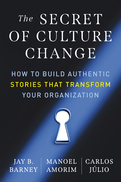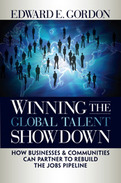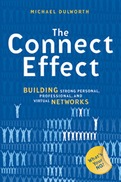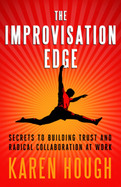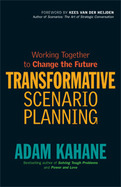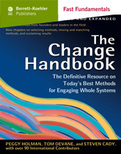Data indicates that most strategic efforts to change a company's culture fail. So how do companies succeed in this endeavor?
A top strategy professor and two highly successful CEOs found that, in companies that had successfully changed their culture, leaders had taken dramatic actions that embodied the new cultural values. These actions inspired stories that became company legends, repeated in every department and handed on to new employees.
Through compiling and analyzing 150 stories from business leaders who have achieved change, they identified 6 attributes that every successful culture change story has in common:
1. The actions are authentic
2. They revolve around the CEO
3. They signal a clean break with the past, and a clear path to the future
4. They appeal to employee heads and hearts
5. They're often theatrical or dramatic
6. They're told, and re-told, throughout the organization
With extensive and inspiring examples of stories containing these attributes, the authors illustrate how readers can harness the power of stories within their company in order to change or create a winning culture to align with any strategy.
• Exposes the root causes of the coming talent crisis facing America, Asia, and Europe
• Shows how we can prevent the crisis by reinventing the education-to-employment system
• Includes dozens of examples of how this is already being done across America and around the world
In the next few years the world will be facing a huge talent shortage. Demographic trends in America, Europe, Russia, and Japan are reducing the pool of new workers. As the need for talent grows, China’s and India’s educational systems won’t be able to produce enough qualified graduates for themselves, let alone the rest of the world. But the heart of the problem is that the education-to-employment system worldwide is badly outmoded. We’re not producing graduates with the kinds of technical, communications, and thinking skills needed in the 21st century.
In Winning the Global Talent Showdown, Ed Gordon surveys the sorry state of the world talent pipeline, with separate chapters on the Americas, Asia, and Europe. Each region faces its own challenges, yet the result is the same: a dramatic shortage of workers who can function in what Gordon calls our “cyber-mental” age.
But this is fundamentally a book about solutions. Gordon argues that we need to completely reinvent our talent-creation system—and some pioneering efforts are already underway. He describes dozens of “gateways to the future,” innovative partnerships in which local governments, schools, businesses, labor unions, parents, training organizations, community activists, and others are collaborating to develop completely new approaches to education. Based on personal experience, Gordon outlines how concerned citizens can establish these partnerships in their own communities. And he looks down the road to 2020, explaining how we can build on the best of these new ideas so that the jobs pipeline flows freely again.
2008
•Offers a systematic approach to developing your networking skills—including an “NQ test” to help you quantify your networking ability
•Features tools and techniques specific to each type of network, as well as advice from leading executives, researchers, and thought leaders
•Copublished with ASTD, the leading association for human resource development professionals
Transformative scenario planning is a powerful new methodology for dealing with these challenges. It enables us to transform ourselves and our relationships and thereby the systems of which we are a part. At a time when divisions within and among societies are producing so many people to get stuck and to suffer, it offers hope-and a proven approach-for moving forward together.


